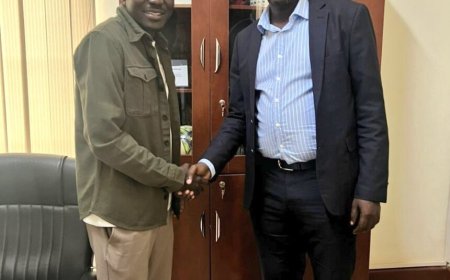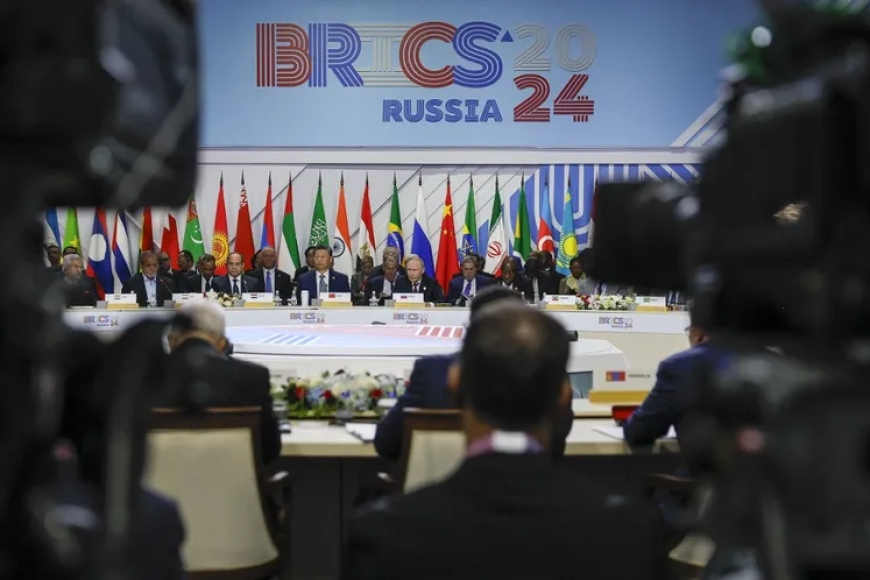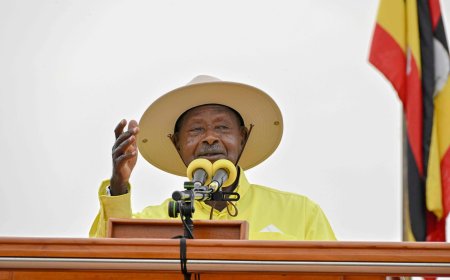Uganda Joins BRICS Alliance as Partner State Alongside Eight Others
Kampala, Uganda — In a significant move for global economic cooperation, Uganda has officially become a partner state of the BRICS alliance, joining an elite group of nations that includes Brazil, Russia, India, China, and South Africa, along with new members Egypt, Ethiopia, Iran, and the United Arab Emirates. This development was confirmed during the BRICS summit in Kazan, Russia, marking a new chapter for Uganda's international relations and economic strategy.
New Economic Horizons for Uganda
Uganda's entry into the BRICS partnership is seen as a strategic move to tap into new economic opportunities. The country's agricultural sector, particularly known for tea and coffee, alongside its burgeoning oil and gas industry, stands at the forefront of potential benefits. This partnership opens doors for Uganda to expand its market reach to over 3 billion consumers within the BRICS network.
Global Implications
The inclusion of Uganda and eight other nations - Belarus, Bolivia, Cuba, Indonesia, Kazakhstan, Malaysia, Thailand, and Uzbekistan - as BRICS partner states underscores the bloc's commitment to broadening its influence and fostering economic development among emerging economies. This expansion is not just about economic growth but also about challenging the dominance of Western economic structures and promoting a more multipolar world order.
Economic Potential for Africa
The addition of African countries like Uganda, Algeria, and Nigeria to the BRICS fold is anticipated to significantly impact the continent's economic landscape. According to recent analyses, these nations are poised to leverage their natural resources and demographic dividends:
Algeria: With its vast hydrocarbon reserves, Algeria could benefit from enhanced trade agreements and investment in infrastructure, potentially leading to increased economic diversification beyond oil and gas.
Nigeria: Africa's largest economy by GDP, Nigeria's inclusion as a partner state could bolster its position in global trade, particularly in oil, gas, and expanding its manufacturing and service sectors.
Uganda: Known for its agricultural prowess, Uganda can now look forward to more equitable trade deals, increased foreign direct investment, and support from the New Development Bank for infrastructure projects that are crucial for sustainable development.
Challenges and Opportunities
While the partnership promises numerous benefits, it also comes with challenges. These include the need for robust infrastructure to support increased trade, the diversification of economies to reduce dependency on traditional exports, and navigating the geopolitical implications of aligning with BRICS, which is often seen as countering Western influence.
The economic potential of these African countries within the BRICS framework is substantial, but it will require strategic planning and collaboration to translate this potential into tangible development outcomes. As these nations move forward, the focus will be on how they can leverage this partnership for mutual growth and global economic balance.
Looking Ahead
With this expansion, BRICS is not only redefining itself but also offering a platform for emerging economies to have a stronger voice in global economic governance. The journey of Uganda, Algeria, and Nigeria as BRICS partner states will be closely watched as they navigate this new era of international economic collaboration.






























































































































